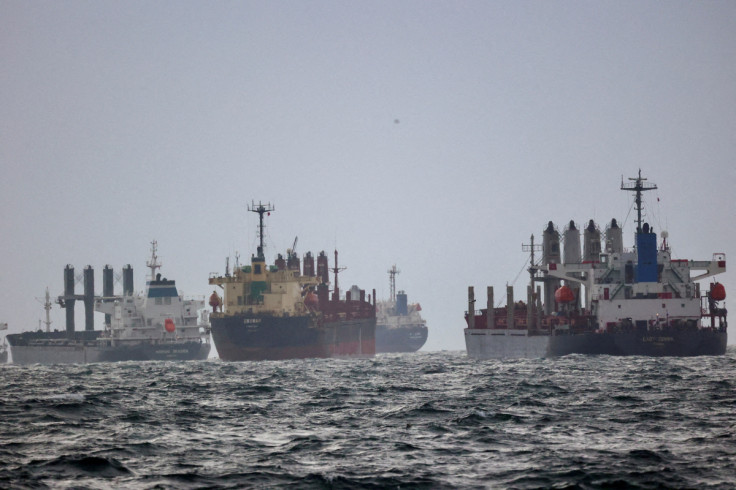Russia Suggests Renewing Black Sea Grain Deal For Shorter Term

Russia on Monday suggested renewing a deal allowing the safe export of grain from Ukraine's Black Sea ports but only for half the term of the previous renewal while the United Nations pledged to do everything possible to ensure the agreement's integrity remained intact.
The Black Sea grain initiative, brokered between Russia and Ukraine by the United Nations and Turkey last July, aimed to prevent a global food crisis by allowing Ukrainian grain blockaded by Russia's invasion to be safely exported from three Ukrainian ports.
The deal, extended for 120 days in November, is up for renewal on Saturday. But Russian Deputy Foreign Minister Sergei Vershinin said after talks with U.N. officials in Geneva that Moscow was ready to extend the deal for only 60 days, citing restrictions on Russia agricultural exporters.
Russia, he said, "does not object to another extension of the 'Black Sea Initiative' after its second term expiration on March 18, but only for 60 days."
"Our further stance will be determined upon tangible progress on normalization of our agricultural exports, not in words, but in deeds," Vershinin added.
Russia has argued that, although the country's agricultural exports have not been explicitly targeted by the West, sanctions on its payments, logistics and insurance industries have created a barrier for it being able to export its own grains and fertilisers.
'CRITICAL MOMENT'
The United Nations said it noted the Russian position and that it remained "fully committed to the Black Sea Grain Initiative, as well as to efforts to facilitate the export of Russian food and fertilizer."
"The UN Secretary-General has confirmed that the UN will do everything possible to preserve the integrity of the Black Sea Grain Initiative and ensure its continuity," it said in a statement.
U.S. State Department spokesperson Ned Price said the negotiations were at "critical moment" and that Washington supported its extension and expansion.
"We know that the world needs this," Price said. "We certainly hope and expect to see it extended and expanded."
A senior Ukrainian government official involved in the talks to secure the initial deal said Kyiv considered a 60-day extension to be in violation of the agreement's terms.
"The agreement clearly states that extensions are possible for a minimum of 120 days," he told Reuters. "To extend it for 60 days, you have to amend the deal."
European traders said uncertainty about the talks, especially the statement that Russia only sought an extension for 60 days, was a factor behind sharp rises in prices on the Paris Euronext wheat market.
© Copyright Thomson Reuters 2025. All rights reserved.





















